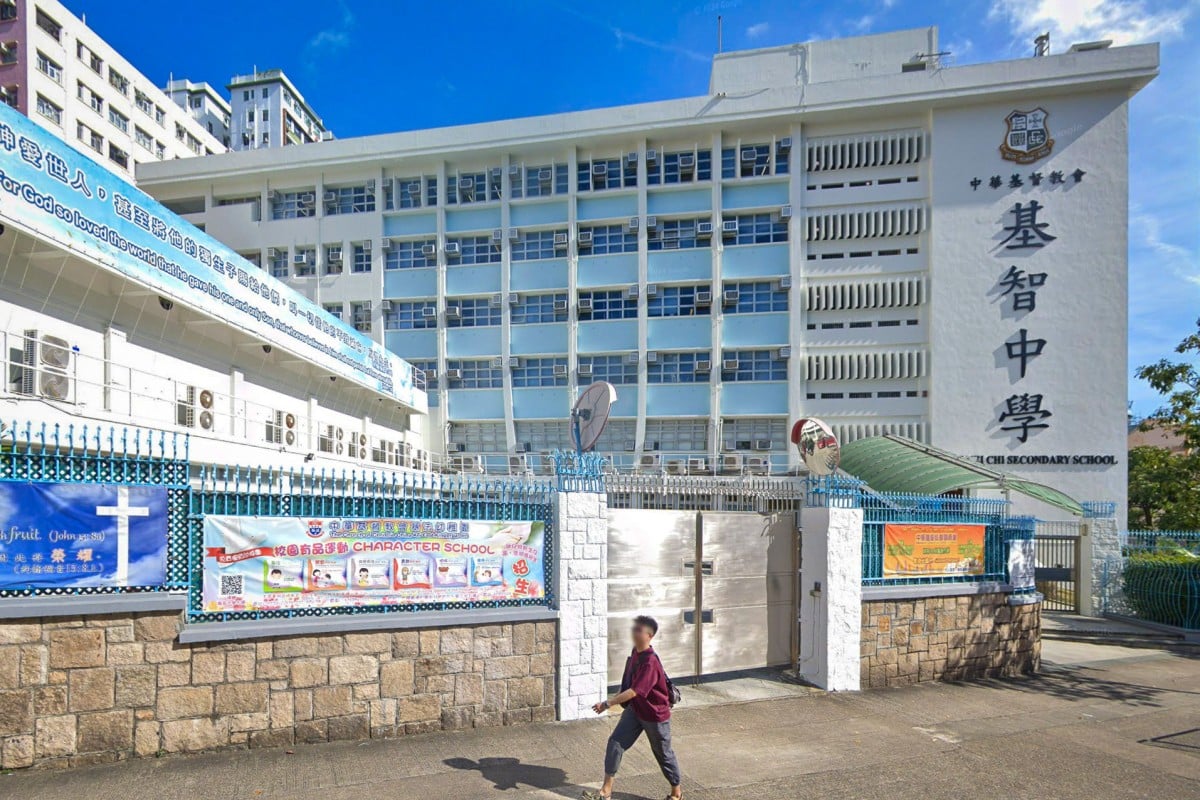 Image of CCC Kei Chi Secondary school. Photo: Google Maps
Image of CCC Kei Chi Secondary school. Photo: Google MapsBefore you read: A former secondary school student called a uniform code requiring girls to wear dresses in winter “unreasonable and discriminatory”. Hong Kong’s High Court dismissed the challenge due to a six-year delay in filing the case and emphasised that schools have the authority to set their own uniform rules
Think about it: Should uniform policies adapt to changing weather conditions? Should students have a say in the rules affecting their daily school life? How can schools create a platform for student input on policies like dress codes?
A former Hong Kong secondary school student has failed in her legal bid to ban a rule requiring girls to wear dresses in winter. A judge said that launching a challenge six years after graduation constituted a “significant delay”.
Last week, Justice Russell Coleman of the High Court dismissed an application for permission to proceed with a judicial review filed by Yuen Man-hei in June against the Education Bureau and CCC Kei Chi Secondary School, which she attended from 2012 to 2018.
Unreasonable requirements
Yuen argued that the requirements for girls in Hong Kong schools to wear dresses or skirts in winter – exposing their calves to the cold – were “unreasonable” and involved an element of sex discrimination.
She said she brought the application to the court six years after graduating because she lacked knowledge of the law.
Yuen, whose current occupation was not indicated, told the court she decided to “voice out for all girl students” because the rule had not changed over the years and only a minority covertly wore trousers to keep warm. “School students would not be able to distinguish law from reasonableness due to their young age, such that the majority go with the flow unquestioningly, whereas the minority keep warm surreptitiously ... to wear long trousers,” she said in her statement, which Coleman cited in his judgment.
Why the bid failed
From a legal standpoint, Coleman was not persuaded by Yuen’s arguments and questioned her capacity to bring the application to court.
Coleman said the law limited the time for a judicial review application to within three months from when the issue first arose. However, Yuen had delayed the matter by six years and was only now arguing over a matter she was no longer affected by.
The judge also attempted to determine whether Yuen had reached the legal age to bring the issue to court while she was still in school but was unable to contact her at the time.
Regarding uniform requirements, the judge noted that each school had the discretion to devise its own rules as long as they were in line with the authorities’ relevant policies and regulations.
CCC Kei Chi Secondary School told the court that it allowed girls to wear grey trousers or stockings when a cold weather warning was issued.
Boys in ballet break stereotypes in Hong Kong
The Kwun Tong school also said it had a mechanism in place to welcome input from students and parents to alter and update school rules as necessary. It said students could ask to wear trousers in special circumstances, subject to the school’s review.
Coleman agreed that, with the mechanism in effect, the school rules did not appear to be “absolute” and that the court should not “micromanage” its administrative actions and decisions.
The judge concluded that Yuen had failed to “identify any factually based reasonably arguable public law grounds” and did not think her arguments had merits for a judicial review.
Under the School Administration Guide issued by the Education Bureau, regulations on uniforms are justified as long as they comply with rules set out by the Equal Opportunities Commission. However, schools are urged to be flexible in adopting particular social and cultural circumstances and consider students’ requests on a case-by-case basis.
